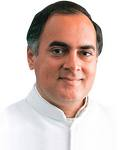Although many have compared the current recession caused by unregulated trading of credit (and it’s many derivatives) with the Great Depression of the 1930’s it is only an insincere soul who would in fact believe it. We are in a much better position in terms of food security, healthcare, access to information and all other essential services, etc. Even during this recession most Americans are still living a luxurious life compared to the rest of the world. It’s almost impossible for anybody living outside of US to summon any pity for folks who chose to dig and delve in an ever deeper credit hole. It’s probably not fair to use the word chose in this context. After all, it was the market created by the banking industry who connived effectively under the Federal government’s eyes-only-for-homeland-security to create this economic morass. Nonetheless, the comparison of our current times to the Great Depression years seems juvenile.
A recession does not only mean a loss in earning potential, loss in opportunities or even a drastic reduction in one’s standard of living, back then it also meant a very real threat of loosing one’s life, one’s family and access to even the very essential of human necessities. Large families were forced to split and fend individually. Families migrated in hordes to different pastures, fuelled only by hope. Loosing a dear one to illness was a real and present threat. With a feeble social safety net to speak of, the falling had little hopes.


 Nuclear war will not mean the death of a hundred million people. Or even a thousand million. It will mean the extinction of four thousand million: the end of life as we know it on our planet Earth”
Nuclear war will not mean the death of a hundred million people. Or even a thousand million. It will mean the extinction of four thousand million: the end of life as we know it on our planet Earth”